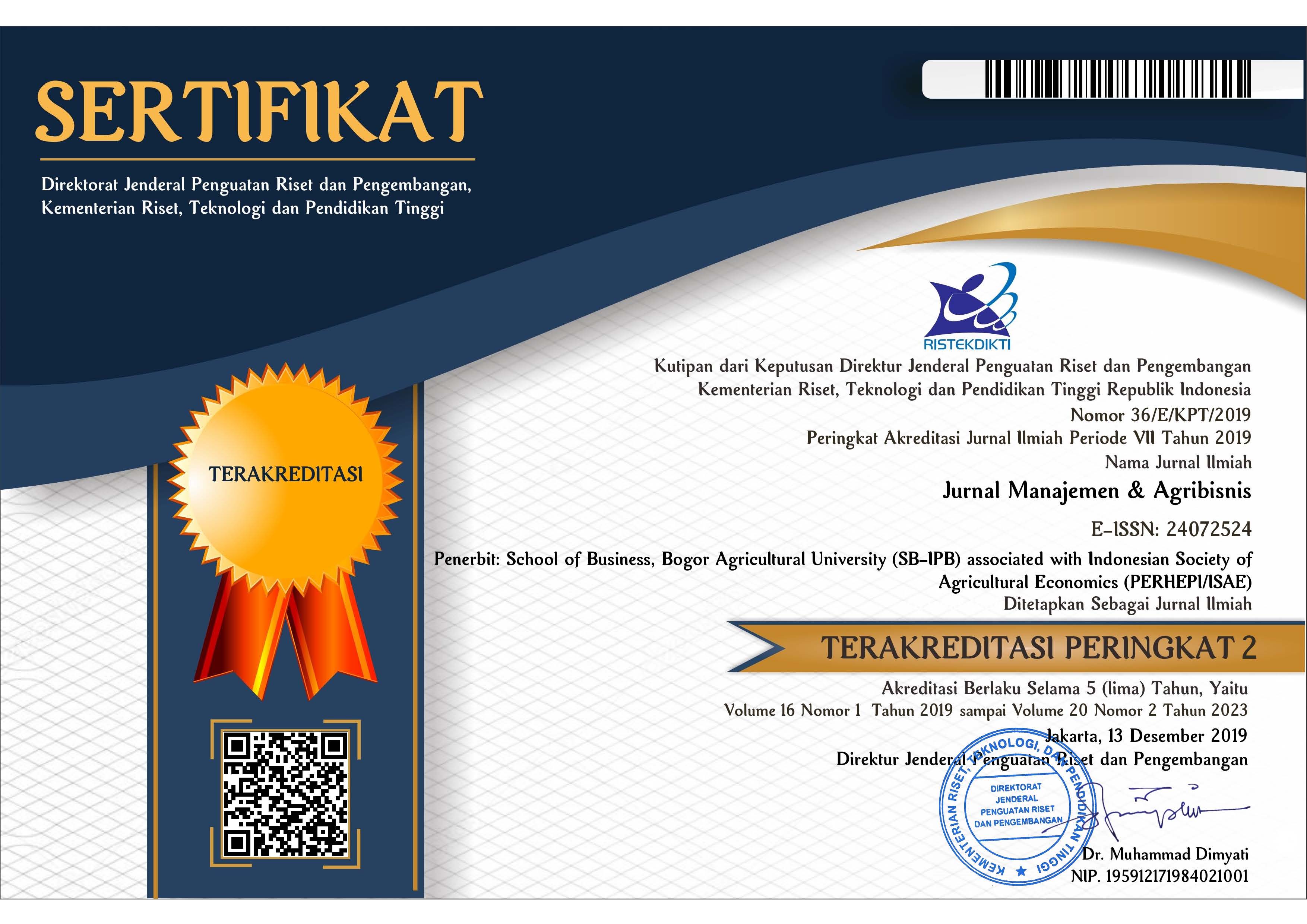ANALISIS PERILAKU KONSUMEN KOTA BOGOR TERHADAP PRODUK KOSMETIK HIJAU
DOI:
https://doi.org/10.17358/jma.5.1.16-22Abstract
The exploding societal movement based upon environmental concerns and consumer awareness is spreading all over the globe. As a result, consumers concern about environmental issues is growing significantly and marketers have realized the importance of introducing green cosmetic products.However, there is doubt whether this awareness and concern is translated into the right behavior. In this study, consumers’ attitudes, behaviors, perception and demographic factor were manipulated to determine their relative influence on willingness to pay for green cosmetic products. The results showed consumer’s age, education, income and ecoliteracy to be the consistent explanatory factor in predicting their willingness to pay. The result also suggested that attitude toward firm’s responsibilities and buying behavior which’s consider environment factor to be the consistent explanatory factor in predicting their willingness to pay. This study also examined the relationships between consumer’s attitude, subjective norms, perceived behavior control and green cosmetic buying intentions using the Theory of PlannedBehavior (TPB). This study revealed that at significance level ten percent, attitude, subjective norm and perceived behavior control correlates positively with intention.Downloads
Download data is not yet available.
Downloads
Issue
Section
Articles
License
Authors who publish with this journal agree to the following terms:
- Authors retain copyright and grant the journal right of first publication with the work simultaneously licensed under a Creative Commons Attribution License that allows others to share the work with an acknowledgement of the work's authorship and initial publication in this journal.
- Authors are able to enter into separate, additional contractual arrangements for the non-exclusive distribution of the journal's published version of the work (e.g., post it to an institutional repository or publish it in a book), with an acknowledgement of its initial publication in this journal.
- Authors are permitted and encouraged to post their work online (e.g., in institutional repositories or on their website) prior to and during the submission process, as it can lead to productive exchanges, as well as earlier and greater citation of published work (See The Effect of Open Access).
How to Cite
Ardianti, N. T., Fahmi, I., & Ratnawati, A. (2011). ANALISIS PERILAKU KONSUMEN KOTA BOGOR TERHADAP PRODUK KOSMETIK HIJAU. Jurnal Manajemen Dan Agribisnis, 5(1), 16-22. https://doi.org/10.17358/jma.5.1.16-22

.png)



